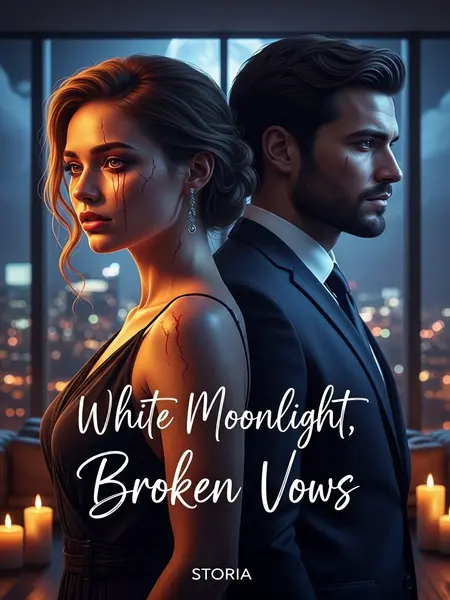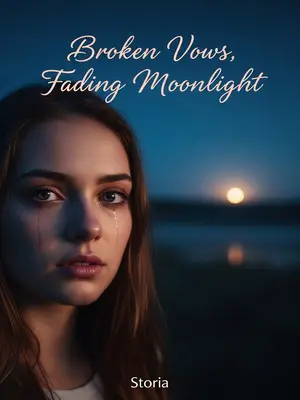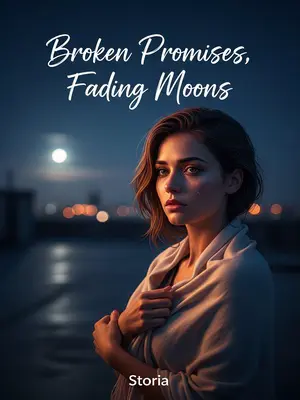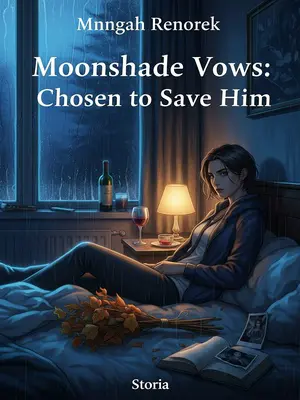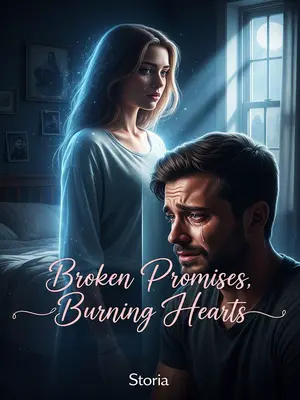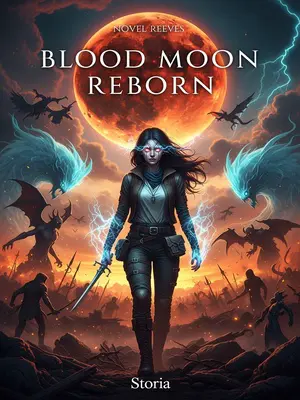Chapter 1: The Ghost in the House
The year my boyfriend was at his lowest, I broke up with him.
I know how that sounds. But it’s the truth.
Back then, I told myself it was for the best, but I remember the way his eyes looked—like the world had just pulled the rug out from under him. Still, it was the kind of heartbreak that sticks with you, even after you try to bury it under years and new beginnings.
Later, after he became successful in tech and everyone knew his name, he did everything he could to marry me.
It was all over the news, his face on magazine covers, the sort of guy people in Chicago would point out if you passed him down Michigan Avenue. Suddenly, everyone wanted to know who he was with. And when he showed up at my door, flowers in hand and that stubborn glint in his eye, I knew he wasn’t the same broke kid I once loved. But he still wanted me—maybe more than ever.
Everyone called me his "white moonlight"—basically, the one he never got over, his first love. The woman he cherished most.
People love a good story, and ours was the kind they’d whisper about over brunch—Rachel, the woman who haunted Carter Whitman’s heart, the one he could never let go. I heard it from friends, from strangers, even from my own mother’s old church friends. They called me his white moonlight—as in, the pure first love that lingers, the one he never got over. A myth, polished until it gleamed.
But after that, he started parading different women through our place every night, broke my heart, and made me the joke among our friends.
It was humiliating. Every time I tried to hold my head high, someone would snicker or look at me with pity. At parties, in gossip, the way Carter paraded his new flings in front of everyone—it was like he wanted to erase me, one woman at a time. On purpose. I became the punchline at cocktail hours and dinner parties, my pain a running joke for people who didn’t know the first thing about what I was going through.
Still, I never cried or made a scene. I kept to the study, never getting in the way of his good times. That was the deal I made with myself.
I made a ritual out of silence. I’d curl up in the armchair by the window, mug of chamomile tea in hand, and pretend the world outside those French doors was where I actually belonged. No one saw me lose my composure. I kept my dignity tucked away, even when the walls felt like they were closing in. In that house, my presence was like a ghost’s—never noticed, never missed.
He lost it one night, grabbed me, kissed me hard, and asked in a low voice, "Doesn’t this make you jealous?"
His breath was warm against my ear, rough and desperate. He wanted a reaction. I could feel the anger in his hands as he held me, like he was trying to wring a reaction out of me. The room was thick with tension, the kind that makes your skin prickle. He wanted to see me break, to see if I still cared enough to hurt.
He didn’t know—I was sick...
He didn’t see the way my hands shook when no one was looking, or how I’d lie awake at night, counting the seconds between heartbeats. My illness was my secret, one I kept close to my chest like a tattered photograph. Carter was too wrapped up in his games to notice the shadows under my eyes or the way I winced when I moved. Sometimes, during an autoimmune flare, I could barely get out of bed.
Every day he took it out on me, I was silently counting down how many days I had left.
I marked each day on a calendar hidden in the back of my desk drawer, the numbers dwindling with a quiet finality. His cruelty became background noise, something I endured with a numb kind of resignation. I was living on borrowed time, and every slight, every cold shoulder, just reminded me how little of it I had left.
In the third year of my marriage to Carter Whitman, he started keeping a college girl on the side—a young, beautiful student he was also financially supporting.
Rumors trickled through our social circle, whispers that Carter had found someone new. Not just another fling. I heard her name before I ever saw her face, and it stung more than I cared to admit. Third year, and already the walls of our marriage were paper-thin.
Her name was Lily Moreno—sweet and innocent-looking, exactly Carter’s type.
She had the kind of beauty that made people pause—a softness around the eyes, a voice that could turn syrupy sweet in an instant. I’d seen photos of her online, all big brown eyes and perfect hair, the kind of girl who looked like she belonged in a college brochure or a spring campaign ad.
He kept her around for more than six months.
Half a year—longer than any of the others. That was the detail that got under my skin. I started noticing the little things: the way Carter smiled at his phone, the extra care he took with his appearance, the new cologne he wore. The house felt emptier, colder. He was somewhere else already.
Besides me, Lily was the one he kept around the longest.
It was a cruel sort of record to hold, but I couldn’t help keeping track. I’d see her name pop up on his phone, hear her laughter in the background when he answered a call. It was as if she’d slipped into my place without missing a beat, and I was just the shadow she stepped around.
Friends warned me to be careful. They said Carter seemed to have truly fallen for Lily.
I got texts from friends—some well-meaning, some just nosy. I stared at the screen. "You should watch out, Rach," they’d say. "Carter’s different with her." The warnings piled up, but I just nodded and thanked them, pretending I didn’t already know.
The first time I met her was on my birthday.
It was a gray Tuesday in January, cold enough that the city felt brittle. I’d always hated my birthday, but that year, it felt especially heavy. There was a sense of dread in the air, like something was about to break. I never expected the first meeting to happen on the one day I wished I could disappear.
That morning, I started having nosebleeds. After a checkup at the hospital, the doctor told me I might not see next spring.
The words felt like a punch to the gut. The sterile smell of the hospital, the hum of fluorescent lights overhead—it all blurred together as the doctor’s voice faded in and out. I sat there, numb, as he explained the prognosis, his words as cold as the exam table beneath me.
I just nodded and whispered, "It’s okay."
My voice sounded so small, almost like it belonged to someone else. I tried to smile, to show the nurse I wasn’t scared, but my hands wouldn’t stop shaking. It was easier to say it was okay than to admit how much it hurt.
I’m not afraid of dying—just of the pain.
I’d always thought I was tough, but the idea of pain—of wasting away, of losing control—terrified me. I remembered my mother’s last days, the way she gritted her teeth through every wave of agony. I didn’t want that for myself, but I didn’t want to be a burden either.
I heard there was an insanely expensive medication that could help me live a bit more comfortably.
The doctor scribbled the name of the drug on a pad, his tone gentle but resigned. "It won’t cure you," he said, "but it might make things easier." I clutched the prescription, wondering how many more things I’d have to give up just to buy a little comfort.
There wasn’t enough money left in my account—not enough for the copay—so I went to Carter’s company to find him.
I checked my online banking app twice, hoping maybe I’d miscounted. But the numbers didn’t lie. Swallowing my pride, I bundled up in my old puffer jacket and headed downtown. The city was gray and cold, wind whipping off the lake as I made my way to Carter’s office tower.
Lily happened to be there too. She had just graduated and was working as Carter’s assistant in the brand-new glass lobby.
